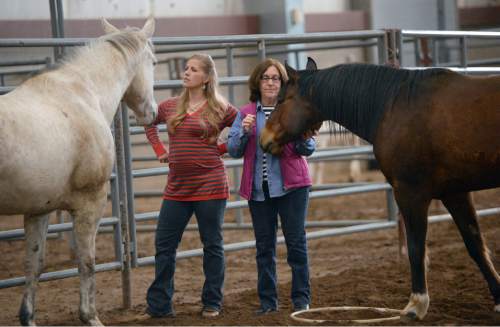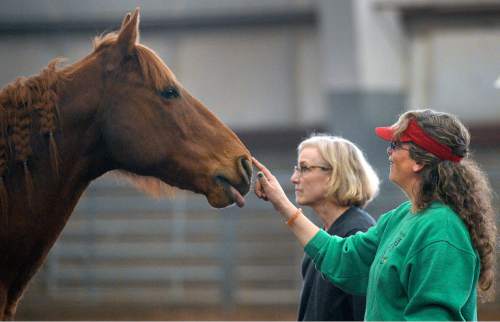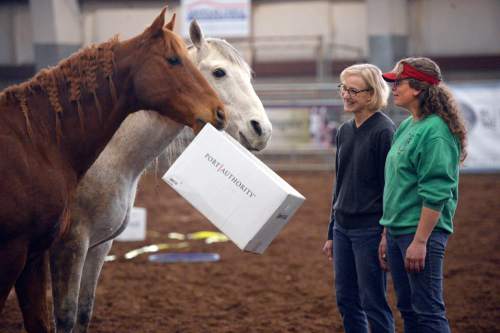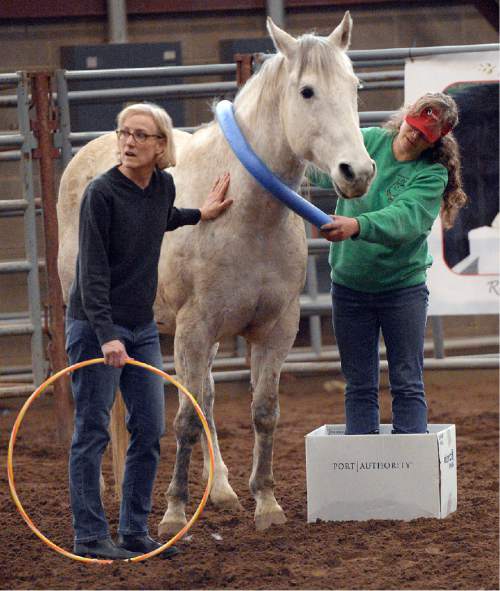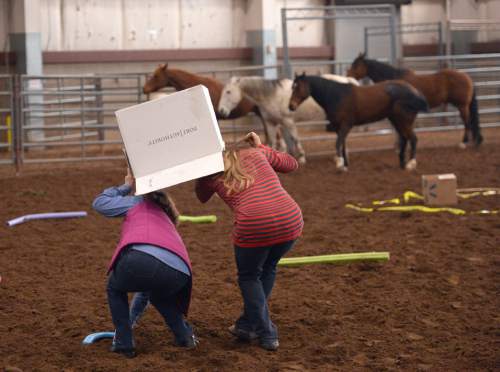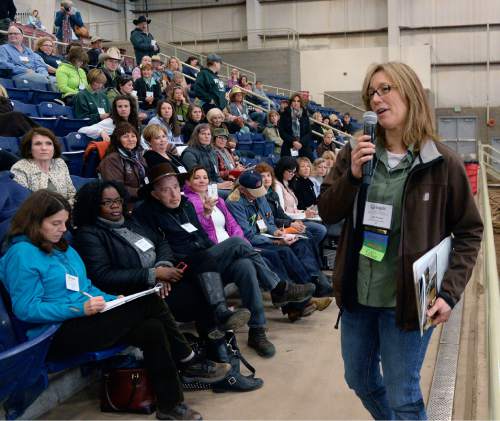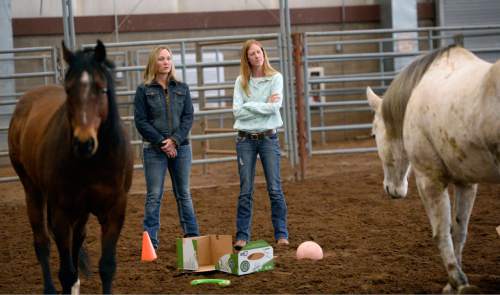This is an archived article that was published on sltrib.com in 2015, and information in the article may be outdated. It is provided only for personal research purposes and may not be reprinted.
Farmington • A horse is often the best therapist.
That's what several hundred counselors and horse experts are learning this week at a conference for practitioners of a horse therapy method first developed in Utah and spreading throughout the world.
At the Legacy Center Arena in Farmington on Thursday, a gray, a chestnut and two bay horses stepped into their roles as playful, curious and sometimes obstinate "clients" in one workshop and as therapist-assistants in others.
Some 400 people from 10 countries and 42 states are attending the 16th annual conference of the Santaquin-based Equine Assisted Growth and Learning Association (EAGALA) this week in Davis County.
Lynn Thomas, the nonprofit's founder and executive director, is a licensed clinical social worker who had nothing to do with horses before witnessing their use in therapy at a ranch for troubled boys.
"I've always been a believer in the experiential, the idea of doing versus just talking," Thomas said. "When I saw horses added in, I was amazed. This works!"
She formed the nonprofit in 1999 and it now has 4,500 members in 50 countries.
In the EAGALA method, a client such as a veteran with post-traumatic stress disorder or a couple in crisis does not ride the horses but instead remains on the ground, touching or talking to the horses, watching for their reactions and using props like plastic balls, cardboard boxes or foam noodles.
For some, the animals' beauty is compelling. For others, fear is the key.
"That can be a metaphor for what else is scary in their lives and how they're going to approach that," Thomas said
A two-person team — a licensed mental health therapist and an equine specialist — watch the interaction from the side of the corral and ask questions of the client to help him or her clarify the experience.
The approach is especially good for those who don't like talk therapy. But it's also increasingly used for corporate team-building or personal development.
Horses, Thomas says, are always on alert, responding to what's going on around them, including the non-verbal messages from humans.
"They start acting just like other things and people in our lives… and next thing you know, those horses start becoming your spouse, your children, your peers," she said.
Clients also project onto the horses their own feelings. "They are talking about themselves without realizing they are talking about themselves," Thomas said.
Based on the horses' reactions, clients learn to adjust their behavior.
"If you want the horse's behavior to change, you really have to change. You can't just talk about changing," Thomas said. "They are changing themselves inside, without realizing it, when they are changing the horses."
Jeff Jackson, a physician's assistant who works with troubled teenagers, came to the conference to learn more about the method. He owns a horse farm in Wisconsin.
He was at turns "encouraged and discouraged," during the conference, he told Thomas, because the method seemed kind of nebulous.
Nonetheless, Jackson said he likely will go through the EAGALA training. The nonprofit certifies practitioners after two three-day sessions.
Mary Jo LaMastra, a licensed mental health counselor near Buffalo, says horses are the perfect partners in therapy because they're prey animals.
"In order to survive, they have to be keenly attuned to their environment and keenly attuned to people and the energy we give off," she said.
The fact that clients do not ride the horses is important, LaMastra said. "It allows [the horses] to be more natural because they're not being controlled."
Likewise, Thomas said, clients "find these resources within themselves.
"But the horses kind of provide the space for them to do that."
Twitter: @KristenMoulton


